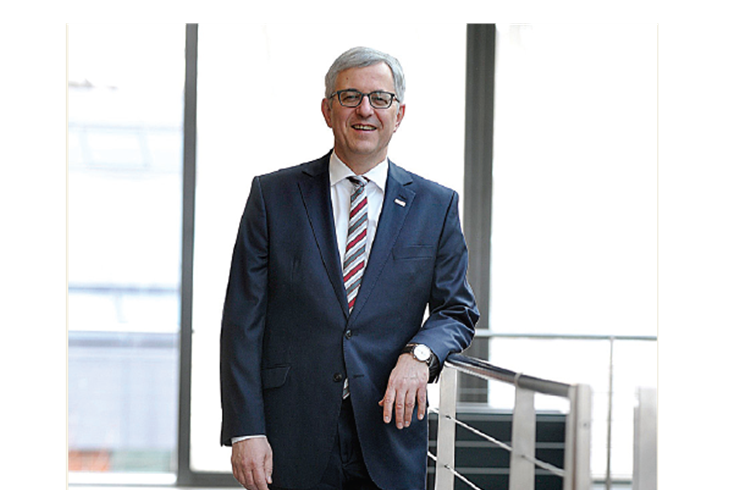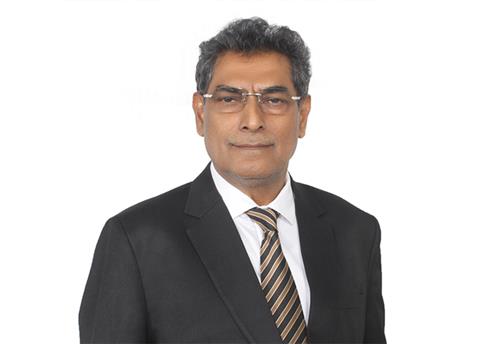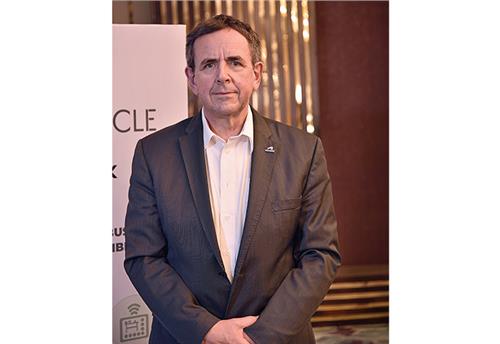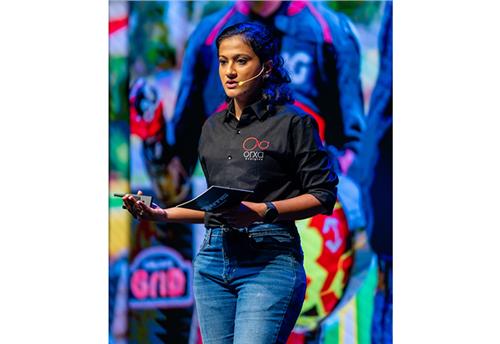'We strongly believe that combustion engines will survive far beyond 2025. We believe electro-mobility will also increase strongly.'
Synthetic fuels are a very important additional key in that because synthetic fuel starts with H2O on one side and ends with synthetic diesel on the other side.
Dr Rolf Bulander, chairman — mobility solutions business, Robert Bosch, speaks to Sumantra Barooah on electro-mobility, synthetic fuels and the key focus area for Bosch.
You made a very interesting point about the reason why powertrains are witnessing bans in various countries and some are coming up in 2025. Also, that perhaps could be ecologically misguided. Why do you say so and why do you also think that politicians or policy makers should not focus on promoting only one particular propulsion technology?
There are different reasons for that. First of all, the CO2 requirements in the world cannot only be reached by electric mobility. We are strong supporters of electro-mobility, we invest a lot in electro-mobility and strongly believe that electro-mobility will grow significantly in the upcoming years. Secondly, we need the improvement of the current combustion engines — diesel and petrol. Diesel has a CO2 advantage of at least 15 percent compared to petrol. We should leverage that and not lose it.
The third point is the question of emissions in the city. Emissions in cities are a major issue but we have to distinguish that because emissions are particles on one side and NOx, nitro, oxygen on the other. Particles for modern diesel cars are not an issue because they are removed by a particulate filter which has already been introduced since years in a modern environment. So the NOx issue has to be solved and technology is there for that. If this NOx technology is applied with Euro 6, it will be 100 percent in Europe. So these NOx issues are solved for diesel engines and that’s the reason why we support diesel engines still very much, although we believe electro-mobility will have also a strong increase.
With the developments being made in clean technologies for petrol and diesel powertrains, do you expect the longevity of the diesel powertrain in passenger vehicles including small cars to go beyond 2025 because that is when industry experts say it will taper off?
We strongly believe that these engines will survive far beyond 2025. You have to distinguish between the size of the car and the range you want to reach with the car.
What is the threshold in terms of the engine size — about 1.5 litres or so?
1.5, 1.6 is recommendable. As longer you want to drive and as heavier your car, more diesel should be supported. For smaller cars and shorter distances, maybe petrol is a better choice.
What is your view about the Indian government’s decision about promoting the new roadmap for mobility solutions? Some ministers are also saying that by 2030 they are looking at an all-electric car fleet. Do you think this is possible for an industry of India’s size?
For the introduction of electric mobility in a society, different road blocks have to be overcome. First, battery cost. If battery cost is too high, then the consumer simply can’t afford an electric car.
Secondly, there has to be an infrastructure for charging. If this infrastructure for charging is not there, a customer will not decide to buy a battery electric vehicle.
And thirdly, the electricity to be provided for the car has to be generated with regenerative with green energy. If you simply use coal-generated electricity, then your benefit for CO2 is negative. And you have take into account that for the production of the battery, you need a lot of CO2 to produce that.
So the battery electric vehicle first has to run against the disadvantage of the CO2 production of the battery. This has to be taken into account. If this equation is positive then battery yes; if this equation is negative, then you should not drive such a steep ramp up of electric mobility, but a flat and gradual ramp up of electro-mobility because the advantages you get from improving your already existing powertrains are much bigger compared to battery electric vehicles.
What is your view on synthetic fuels because part of industry is also witnessing that as being a new opportunity, albeit not immediately but after 2030?
Synthetic fuels are a very important additional key in that because synthetic fuel starts with H2O on one side and ends with synthetic diesel on the other side. They provide the possibility to have CO2- neutral energy in standard powertrains, which would be a great advantage if the electricity is generated with green energy.
This interview cannot end without asking one question about the role of India in Bosch’s global scheme of things. I understand you already have about 18,000 engineers there and India, being a hotbed for software development and artificial intelligence, is a key focus area for Bosch. What role do you expect India to play in the overall scheme of things?
India is one of the most important countries in terms of knowledge, especially for software, in terms of market especially for its size, and in terms of development because of its future. So we invest a lot in India, we rely on India. We have a lot of people in India and I have close colleagues with whom I continuously talk and discuss the Indian market.
Could the Indian centre be a global centre for excellence for AI for Bosch?
It can be. India’s capability can be one cornerstone for artificial intelligence in the world for Bosch.
RELATED ARTICLES
BRANDED CONTENT: 'We aspire to be among the leading sensors and electro-mechanical products manufacturer'
P. Parthasarathy, Founder & Managing Director, Rotary Electronics Pvt Ltd shares the company's commitment and vision to ...
‘Big opportunity for startups lies in products in India’: Detlev Reicheneder
As electrification levels the playing field, the focus on tech and R&D to bring innovative products is the mantra for st...
'I hope my journey makes people say — I can do this too'
Ranjita Ravi, Co-founder of Orxa Energies — the maker of Mantis e-bikes — shares the challenges of building a startup an...





 08 Aug 2017
08 Aug 2017
 5245 Views
5245 Views





 Autocar Pro News Desk
Autocar Pro News Desk




